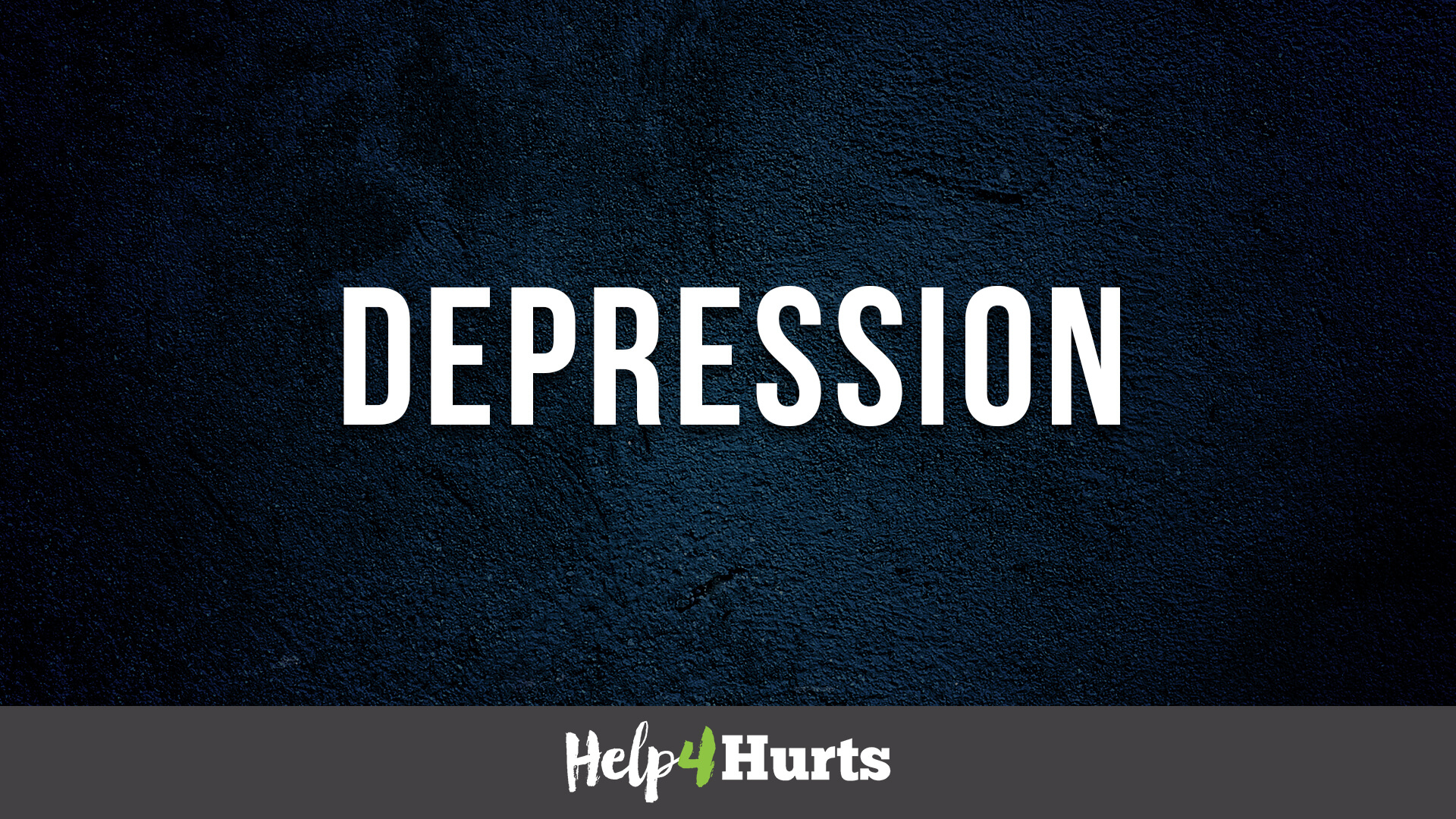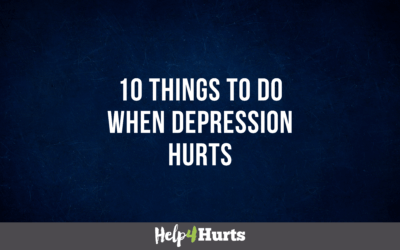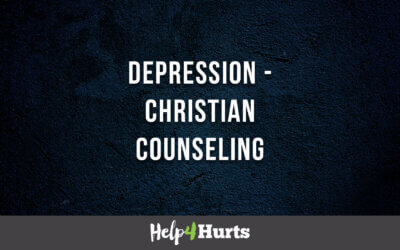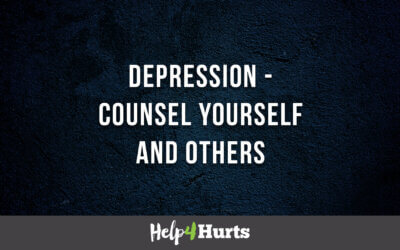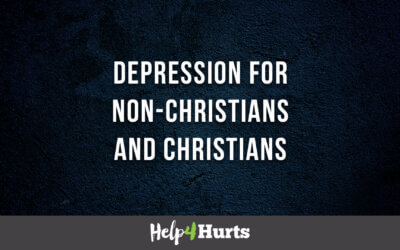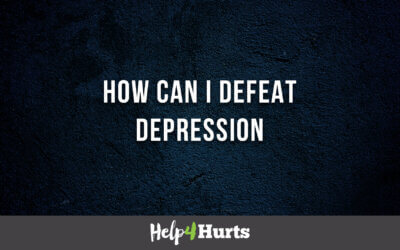Depression occurs two times more often in women than in men and is three times more prevalent in higher socioeconomic classes than in lower classes. Depression has more to do with anger than with sadness.
Clinical Depression – when one is so depressed that their emotional state is manifesting itself as an array of physical problems in the body.
The Warning Signs of Depression
#1 – Moodiness
Sad facial expressions
- Some try to hide their sad facial expressions by smiling.
- This is called smiling depression and the smile usually looks artificial and thin.
Frequent crying or moping.
Downcast features.
A look of exhaustion and discouragement.
#2 – Painful Thinking
This causes the depressed person to be introspective in a very self-defeating, self-blaming way. (“What if”, “if only” and wallowing in guilt)
The depressed person will take and exaggerated view of his problems, and will bitterly condemn himself or others for those problems.
- Also, this person in many cases will feel completely helpless and boxed in by these problems.
He is so self-focused and inwardly focused that his concentration, attention, and memory are impaired.
The person who is so caught up in painful thinking usually loses motivation and interest in previously enjoyable activities.
Begins to avoid people, and his self-imposed isolation serves to increase the pain and bitterness of the depression.
3# – Anxiety
Often develops signs of anxiousness and irritable behavior.
Seems tense, nervous, and agitated.
Whereas many depressed people sit and stare at the wall, the person with combined depression and anxiety may have trouble sitting still.
#4 – Physical Symptoms
Negative mental and emotional activity in the brain stimulates the production of brain chemicals that affect body functions.
Sleep is affected.
While awake, body movements are decreased and there may be possible stooped posture.
Appetite and body weight might diminish.
May have diarrhea, constipation, or alternating bouts of both.
Sexual interest disappears.
Tension headaches, dry mouth, rapid or irregular heartbeat.
A woman’s menstrual cycle may stop or become irregular.
#5 – Delusional Thinking
The person cannot sort fantasy from reality.
Common symptoms: auditory hallucinations and visual hallucinations.
This only occurs in cases of very severe depression.
Classifications of Depression
#1 – Depressive disorders are sometimes classified according to whether the source of the depression is primarily external or internal.
Endogenous depression – comes from sources that are entirely within the individual, such as a chemical imbalance in the brain or a physical disease.
Exogenous depression – caused by a person’s reaction to external stress factors
#2 – Depressive disorders are also classified according to the symptoms they produce.
- Depressive Neurosis – when the symptoms interfere with and individual’s physical wellbeing and their relationships.
- Agitated Depression – When a person shows signs of considerable anxiety along with moodiness, painful thinking, and slow body movement (psychomotor retardation).
Psychotic Depression – when a person has some of the previously mentioned symptoms plus delusional thinking or hallucinations.
- Psychotic depression can turn into a schizophrenic disorder which is not curable yet.
Psychological depression in children is common following a major loss or disruption in life.
Usually takes the form of withdrawal, prolonged sadness, and a marked increase or decrease in the child’s activity level.
Psychological depression in adolescents:
– May be disguised by a different set of symptoms.
– May become irritable, hostile, and rebellious.
– May be experiencing significant guilt.
Psychological depression in the elderly:
– What makes this a special situation is the special issues and losses that a person must go through with advancing age.
– Losses tend to cluster together and take on greater symbolic meaning.
Postpartum Depression – affects new mothers within the first week or so of delivery.
– Caused by hormonal imbalances, family or social pressures, emotional stress, and physical exhaustion.
– Can become a true depressive illness.
– Can involve insomnia, irrational fears, irritability, crying, guilt, and even rejection of the baby.
Manic-Depressive Disorder (aka Bipolar disorder) – probably generic in origin and symptoms include:
– Extreme swings of mood from a delusional, grandiose euphoria (marked by rapid, excessive, excited talking) to sever depression with suicidal tendencies.
– On minute the person will be cheerful, ambitious, optimistic (the manic phase) and then the next minute display the classic symptoms of depression (low self-esteem, tearfulness, painful thinking, physical symptoms, withdrawal, guilt, and anger).
Grief and Depression
Whenever an individual suffers a significant loss, he or she must go through the stages of grief:
#1 – Shock/denial
#2 – Anger (anger toward outward)
#3 – Depression (anger toward inward)
#4 – Bargaining
#5 – Sadness
#6 – Resolution and acceptance
The depression component of the grief reaction is not a true clinical depression but a temporary stage taken to go from traumatic loss to emotional recovery.
#1 – This does, however, bear many of the same features as the clinical depression (altered sleep patterns, diminished motivation, crying but generally passes.
#2 – If the person gets stuck in the anger or depression stage of grief then they can settle into a true clinical depression.
#3 – The anger that follows a major loss is not a sin but a normal human response.
#4 – One should not feel guilty for the feeling of anger.
#5 – If there is any guilt for being angry, it should be surrendered to God as you ask His forgiveness and His help in forgiving ourselves.
Profile of a Depressed Individual
Some symptoms and personality traits commonly seen in people who are depressed:
Worry and pessimism
Low energy; weariness
Sense of futility; feelings of uselessness
Moodiness (sad affect); unhappiness; sadness
Feelings of worthlessness
Feelings of hopelessness
Feelings of helplessness
Thinking permeated by guilt
Dwelling on the past
Despondency and gloom
Agitation and irritability
Perplexity and confusion
Feelings of inadequacy; low confidence; low self-image
Feeling that all endeavors are meaningless and without value
Inability to concentrate
Decrease in body movement (psychomotor retardation)
Decrease in thought process
Sullenness, bitterness, anger, resentment
Anxiety
Hypochondriasis
Sense of dread, and particularly dread of death
Melancholia
Attention turned completely inward
Paralysis of the will
Beliefs that morning is the worst part of the day
Decrease in appetite or increase in weight (usually loss)
Coldness of extremities
Insomnia (inability to sleep)
Difficulty staying asleep
Increase in sleep (occasionally)
Decrease in sex drive
Dysmenorrheal (menstrual irregularities)
Amenorrhea (the menstrual cycle stops temporarily)
Hot flashes
Suicidal thinking
Painful thinking
False guilt or authentic guilt
Dejected or discouraged appearance
Frequent crying
Unkempt or slovenly appearance
Withdrawal
Loss of sense of humor
Living in the past; the future seems bleak
Belief that life is not worth living
Introspection and introversion
Physical symptoms: tension headaches, rapid heartbeat, infections, gastrointestinal disturbances
Feelings of unreality or feelings that one is leaving the body (depersonalization)
Feelings of being unloved and mistreated
Remorse
Difficulty remembering joys of the past
Lack of motivation, initiative, or spontaneity
Halting and uncertain speech
Neck-ache
Backache
Dryness of mouth
Limp handshake
Craving for love from others
Expectations of rejection
Feelings of isolation
Clinging behavior
Defenses of denial, displacement, introjections, projection and somatization
Desire to conceal aggression
Feelings of being a “super person” that occur prior to the fall into depression as a manic defense against becoming aware of one’s low self-worth
Possibility of paranoia; becoming convinced others are angry at him, even though they aren’t; projecting anger onto them much as a slide projector projects a slide onto a screen
Masochism – seeking painful experiences and the security of familiar masochistic patterns
No enjoyment in recreation
Behavior that causes one to become the object of the anger of other family members
The Sources of Depression
A number of internal and external factors can precipitate an experience of severe depression.
#1 – Internal Factors (Factors that are largely under our control)
- Depression cannot be inherited but certain symptomatic ways our bodies manifest depression can be.
- Most human depression is caused by the individual’s own attitude and behavior and is usually rooted in the way that person deals with anger and guilt.
- Though it’s true that genetic factors can make some people slightly more susceptible to clinical depression because of depletion of a chemical neurotransmitter called norepinephrine (or noradrenaline) in the brain that is only one contributing factor of many in a case of depression.
- This can be avoided by making healthy choices in regards to the handling of anger towards life’s problems.
Depression is a condition that – at least in the early stages – is largely ours to control.
- We need insight into how depression works;
- We need the will and desire to make the choices that lead to joy and peace.
#2 – External Factors (Factors that are largely beyond our control)
The following are some of the precipitating events that often trigger unhealthy responses in people, leading to sever depression:
A major loss
A major life change
- When an emotionally healthy person undergoes a stressful life change and responds by becoming anxious or depressed, that person is said to be undergoing an adjustment reaction.
A trauma to our self-image.
- The breakup of a marriage can make people feel rejected and unworthy.
- The loss of a job or demotion can make people feel unvalued and incompetent.
- Some situations that undermine our self-esteem are self-inflicted and the result of sin
– Example: Extramarital Affair – At that moment of the sin we ought to feel defiled and unworthy, and our self-esteem should be diminished until we have repented, made amends, and made sure that we will not do it again.
– Distorted perspective on life (usually a combination of external and internal factors)
- External Factor – we live in an affluent and increasingly decadent society filled with many pressures and temptations
- Internal Factor – it is easy then for Christians to become focused on wrong values, and look at the world with a distorted perspective. Psalm 73:1-3
Disordered priorities
- A hierarchy of Godly priorities that if obeyed will lead to greater emotional health.
- If ignored, it can leave you open for many kinds of emotional and relational problems, including severe depression
Wrong priorities
- The God ordained hierarchy of priorities includes:
Love God
Love your spouse
Love your children
Love your family of origin (parents, siblings)
Love fellow Christians
Love your neighbor
- When these disordered priorities produce harm in your relationships and your emotions, the result is often serious depression.
Satanic attack (1 Peter 5:8)
- One satanic strategy for immobilizing Christians is to paralyze them with depression.
- Christians are not powerless against Satan. They have the indwelling power of the Holy Spirit to draw upon.
Recovery and Prevention
The following principles will help you with your two primary objectives: getting well and staying well.
#1 – Accept responsibility for your depression and your recovery.
- Recognize that the most important factors that affect your depression (attitude, thinking, anger) are under your control.
- Seek God’s help in taking over the reins of your emotions.
#2 – Commit yourself to thanking and praising Jesus Christ EVERY DAY.
- A daily habit of worship, beginning the moment you rise in the morning, is a great way to set your attitude choice for the rest of the day.
- Pray for joy, peace, self-control, wisdom, and the grace to forgive yourself and others throughout the day.
#3 – Take time to meditate on God’s Word.
- What is being put in your mind?
- Garbage in, garbage out
-If you are feeding your mind bad messages (“You are hopeless”, etc.), painful memories, feelings of shame, and feelings of anger it can lead to a self-defeating behavior.
– Romans 12:2, renew your mind daily!
– 4:4, feed on the goodness of God and let His Word be our source of input from now on.
#4 – Monitor your thinking.
- If you change your way of thinking you can begin to change your mood.
- You can choose what you think about (Philippians 4:8).
#5 – Purge anger daily.
- Anger has to be flushed out of your system daily, or it will build up corrosive deposits on your soul.
- Ephesians 4:26
#6 – Don’t seek revenge.
- By moping and inflicting their moods on everyone else, depressed people sometimes try to get attention, or they may just try to make everyone else as miserable as they are.
#7 – Develop true intimacy with family and friends.
- Spend time with children and alone time with your spouse.
- Don’t neglect relationships with your parents, siblings, and close friends.
- Resolve conflicts as soon as possible.
- Depression is often precipitated by problems and conflicts in our most important relationships.
- Develop close fellowships and friendships with other Christians.
– We all need the celebration, growth, accountability, and just plain fun that comes from being involved in a small group Bible study.
#8 – Avoid over-introspection and an over-preoccupation with self.
- Depression-prone people should not spend hours in contemplation of their issues because they have a built-in tendency to be overly critical and hard on themselves, and they easily lose objectivity.
#9 – Make constructive changes in your behavior.
- You do what you do because you feel the way you feel and you feel the way you feel because you do what you do.
– Since it is much easier to change the way you behave than it is to change the way you feel, it is your behavior that you need to focus on the most.
#10 – Change your self-talk.
- As you monitor your thinking, become away of the times you think critically, the times you blame yourself, the times you dwell on failures, flaws, and limitations.
– Every time you catch yourself thinking negatively, make a conscious decision to refocus your thinking onto the positive aspects of your character, accomplishments, growth and progress, and most of all, your position as a child of God.
#11 – Practice assertiveness
- Depression is often the result of allowing ourselves to be hurt and exploited because we are nonassertive.
- People who are passive and nonassertive eventually internalize their resentment over being ignored and having their needs go unmet.
- The healthy, balanced approach to meeting the needs and desires in life is to be assertive, to state your convictions and wants in a firm but caring way.
#12 – Get involved in a daily routine that brings joy and satisfaction to your life.
- Routine gives order and structure to life.
- Don’t overbook yourself
- Maintain reasonable expectations of what you can get done in a day.
#13 – Accept your humanness.
- When you make mistakes, ask God’s forgiveness and forgive yourself; don’t dwell on the mistakes or try to punish yourself.
- As we learn to have more of God’s perspective on our lives, we will learn to give ourselves more room to be human, and to make mistakes and learn from them.
#14 – Learn to laugh.
- Laughter is a natural healer.
- Ask God for the gift of laughter.
– Laughter is God’s gift to us to help us restore a more balanced and positive perspective on life, and even on life’s problems and stresses.
- Learn to laugh at yourself and your problems.
- Seek out releases and escapes that let you laugh.
- Spend time with friends who make you laugh.
#15 – Seek professional help.
- There are a number of physical conditions that sometimes contribute to depression, and these medical problems require medical treatment so that the emotional problem can be alleviated.
- Careful use of antidepressant medications can be helpful in restoring the balance of neurotransmitters so that the cycle of depression can be interrupted and you can regain a healthy perspective on life.
- Sometimes hospitalization will be recommended so that the person can:
– Receive intensive psychotherapy;
– Be continually monitored and medically treated;
– Be protected from suicide attempts
– Experience a helpful, friendly atmosphere.
#16 – Work all your strategies simultaneously.
- Though there is no single solution to depression, we believe that there can be no ultimate solution without faith in Jesus Christ and applying the principles of God’s Word to everyday living.

